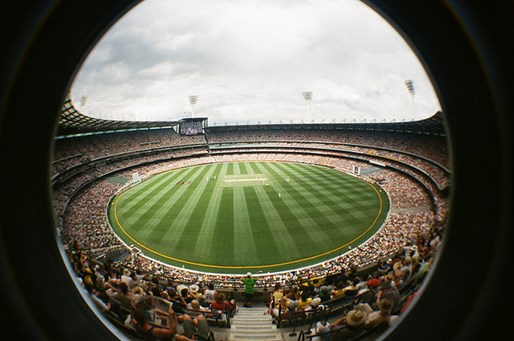Confessions of a Reformed Fixer

Focus on corruption in cricket. Photo (c) flickr user ebotunes and licensed under a Creative Commons 2.0 licence.
07.09.2010
By Murali KrishnanACSU said Kohli, 45, was solely responsible for fixing the high-voltage India- Pakistan match during the 1999 World Cup in England, played in the backdrop of the Kargil war. Pakistan scored just 180 runs in 45.3 overs, and India won rather too easily by 47 runs.
Kohli threw big parties and reaped rich dividends. He was on backslapping terms with Wasim Akram, Waqar Younis, Moin Khan and Inzamam-ul-Haq, among others. But when the Hansie Cronje scandal emerged in March 2000, investigations and tax probes left his fixing career in tatters. Kohli now claims to have taken ‘cricketing sanyas’ but is eager to offer comments. He claims Pakistan is the easiest team that can be ‘made’. “It is not that Australians don’t like partying hard and like the good things in life. It is just that the Pakistani players like it more and are willing to go that extra mile,” he says.
Kohli lists several facilitating factors. “Many players are not paid well, have humble origins and want a good life. And though they may be talented, they want to make quick money. So they take the plunge,” he explains.
Pakistan’s troubled cricketing history is littered with examples of corruption, intrigue and sleaze that have brought the game and the nation into disrepute. A quick sampling: Life bans meted out to Salim Malik and Ata-ur-Rehman, the Justice Qayyum report on match-fixing, Presidential pardon to Shoaib Akhtar’s constant fight against fines and bans, Mohammad Asif’s alleged drug offences, Shahid Afridi’s ball-tampering, Kamran Akmal and Rana Naved-ul-Hasan under the scanner over match-fixing allegations, the alliance of former captain Javed Miandad’s son Junaid with India’s most wanted fugitive Dawood Ibrahim’s daughter Mahrukh, and finally, cricket’s biggest whodunit — the murder mystery of Pakistan coach Bob Woolmer during the 2007 World Cup.
“The fact remains that agents and managers of certain players are big into betting. This is a very big industry which has huge money is at stake,” says Kohli.
He recalls how wicketkeeper Rashid Latif, who has done a lot of finger-pointing of late, had himself been the subject of scrutiny. “I remember a match in Sharjah against Sri Lanka. Pakistan lost by about 10 runs and the amount of dot balls which Latif played left me thinking. Normally, my judgement is very good and I know why a particular player is playing in a particular manner,” he elaborates.
DESPITE THE best efforts to stamp out corruption by cricket’s administrators, it persists and will continue to do so, he says. “Mohammad Amir may not have got money for his no-ball, but the message Majeed was trying to send across to potential bettors was that he had a vice-like grip on the Pakistani team,” says Kohli. Majeed’s other message was that he had won captain Butt’s confidence as it is he who decides the bowling changes.
On this side of the border, Kohli insists, bookies are pumping big money into registered online betting and gaming sites including Betfair, Ladbrokes, William Hill and Victor Chandler. It extends to football and tennis as well.
Outside England, he says, many people bet in tax havens like Guernsey in the Channel Islands to avoid the 10 percent tax on winnings. The wager is higher among bookies in the long form of the game, as it gives cartels time to manoeuvre. And if team members are in your pocket, the odds are heavily stacked on the fixer’s side.
This article first appeared in the Indian weekly news magazine, Tehelka, on 7 September 2010. It is reprinted on www.playthegame.org with kind permission from the author.





